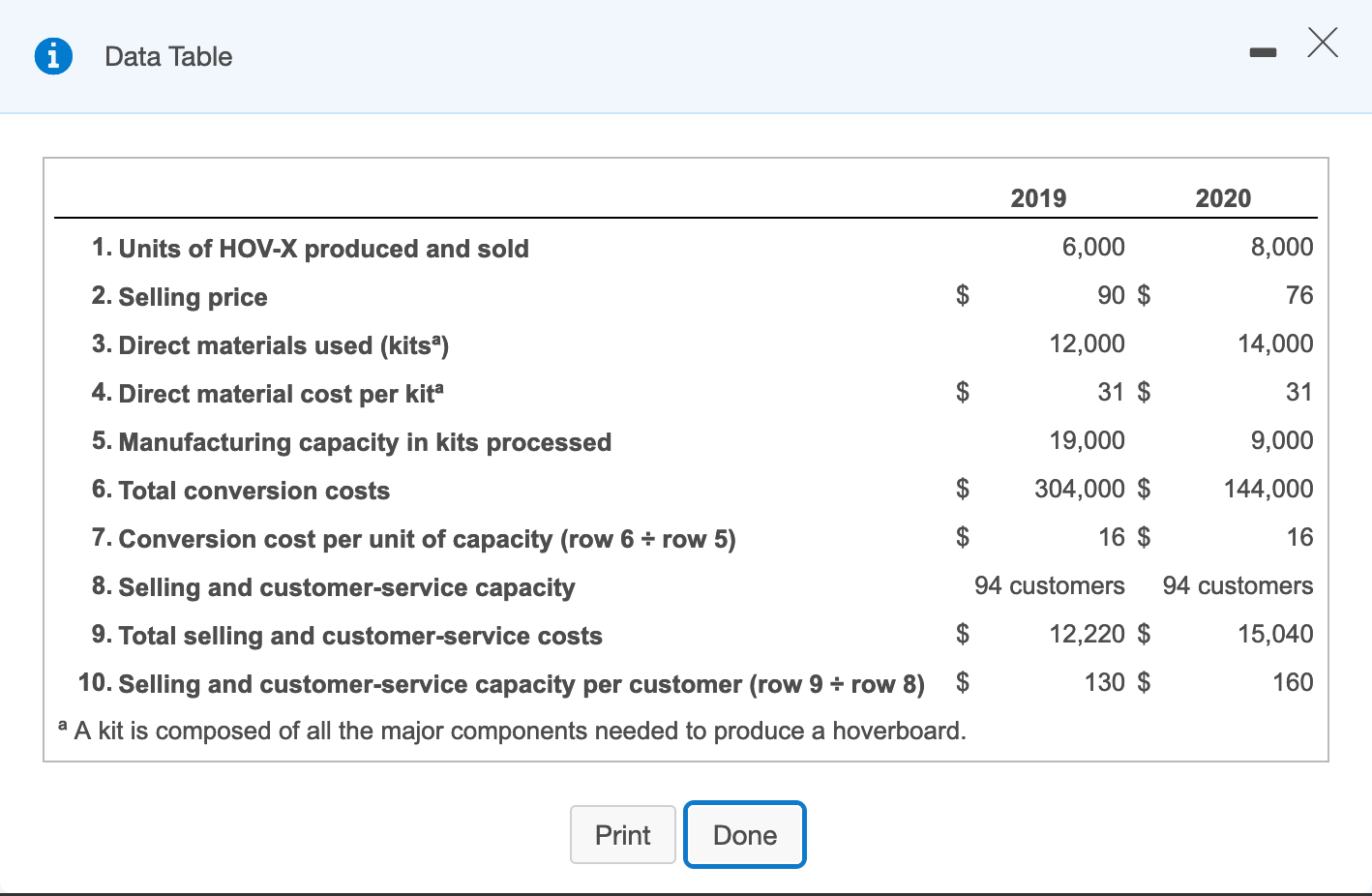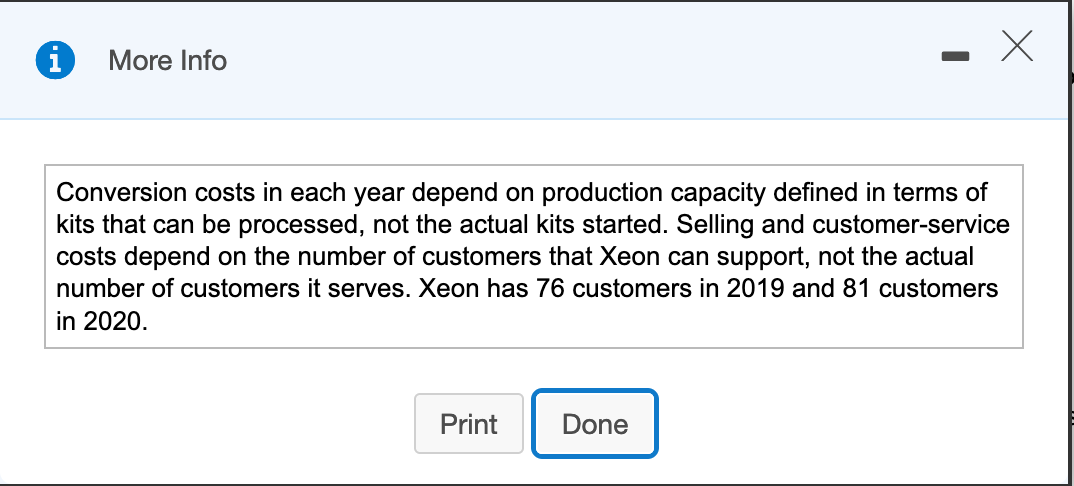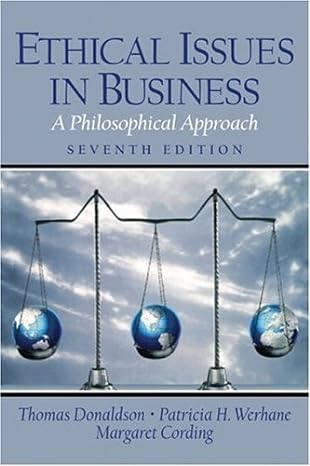Help with this HW problem please. I have screenshotted dropdown for req. 1. Please show work it helps me understand where you are getting your calculations, thanks!






The Xeon manufactures an entry-level hoverboard, HOV-X. Pursuing a cost-leadership strategy, the company has tried to improve quality and reduce costs. As a result of the actions taken over the last year, quality has significantly improved in 2020 while rework and unit costs of the HOV-X have decreased. Xeon has reduced manufacturing capacity because capacity is no longer needed to support rework. Xeon has also lowered HOV-X's selling price to gain market share and unit sales have increased. Information about the current period (2020) and last period (2019) follows: (Click the icon to view the information.) Click the icon to view additional information.) Read the requirements. X Data Table - 2019 2020 1. Units of HOV-X produced and sold 6,000 8,000 2. Selling price 90 $ 76 3. Direct materials used (kitsa) 12,000 14,000 4. Direct material cost per kita $ 31 $ 31 5. Manufacturing capacity in kits processed 19,000 9,000 6. Total conversion costs $ 304,000 $ 144,000 7. Conversion cost per unit of capacity (row 6 = row 5) $ 16 $ 16 8. Selling and customer-service capacity 94 customers 94 customers 9. Total selling and customer-service costs $ 12,220 $ 15,040 10. Selling and customer-service capacity per customer (row 9 = row 8) $ 130 $ 160 a A kit is composed of all the major components needed to produce a hoverboard. Print Done i More Info Conversion costs in each year depend on production capacity defined in terms of kits that can be processed, not the actual kits started. Selling and customer-service costs depend on the number of customers that Xeon can support, not the actual number of customers it serves. Xeon has 76 customers in 2019 and 81 customers in 2020. Print Done Requirement 1. Calculate the amount and cost of (a) unused manufacturing capacity and (b) unused selling and customer-service capacity at the beginning of 2020 based on actual production and actual number of customers served in 2020. First, calculate the amount and cost of (a) unused manufacturing capacity. Cost of unused capacity Now calculate the amount and cost of (b) unused selling and customer-service capacity. customers and the cost of unused selling and The amount of unused selling and customer-service capacity is customer-service capacity is First, calculate the amount and cost of (a) unused manufacturing capacity. X Cost of unused capacity b) unused selling and customer-service capacity. tomer-service capacity is customers and the cost of unused sell Actual units Amount of unused capacity Cost per labor-hour Maximum capacity Support cost per unit Total support costs Id or reduce its selling and customer-service capacity in increments of 10 cu First, calculate the amount and cost of (a) unused manufacturing capacity. = Cost of unused capacity X = apacity. omers and the cost of unused sellir Actual units Now calculate the amount and cost of (b) Amount of unused capacity The amount of unused selling and custon Cost per labor-hour customer-service capacity is Maximum capacity Support cost per unit Requirement 2. Suppose Xeon can add Total support costs and customer-service capacity? ce capacity in increments of 10 cus Requirement 2. Suppose Xeon can add or reduce its selling and customer-service capacity in increments of 10 customers. What is the maximum amount of costs that Xeon could save in 2020 by downsizing selling and customer-service capacity? Xeon can reduce selling and customer-service capacity by another customers. Xeon will save another This is the maximum amount of costs Xeon can save in 2020. Requirement 3. Xeon, in fact, does not eliminate any of its unused selling and customer-service capacity. Why might Xeon not downsize? Select two statements that would explain why Xeon might not downsize. Xeon may choose not to downsize because it projects sales increases that would lead to a greater demand for and utilization of selling and customer-service capacity. It is difficult to reduce and then immediately increase capacity. Xeon may choose not to downsize because it wants to appear as though it has the capacity to produce many more units for potential customers. Not reducing significant capacity by laying off employees boosts employee morale and keeps employees more motivated and productive. Xeon may choose not to downsize because competitors will view it as a sign of weakness if they downsize













